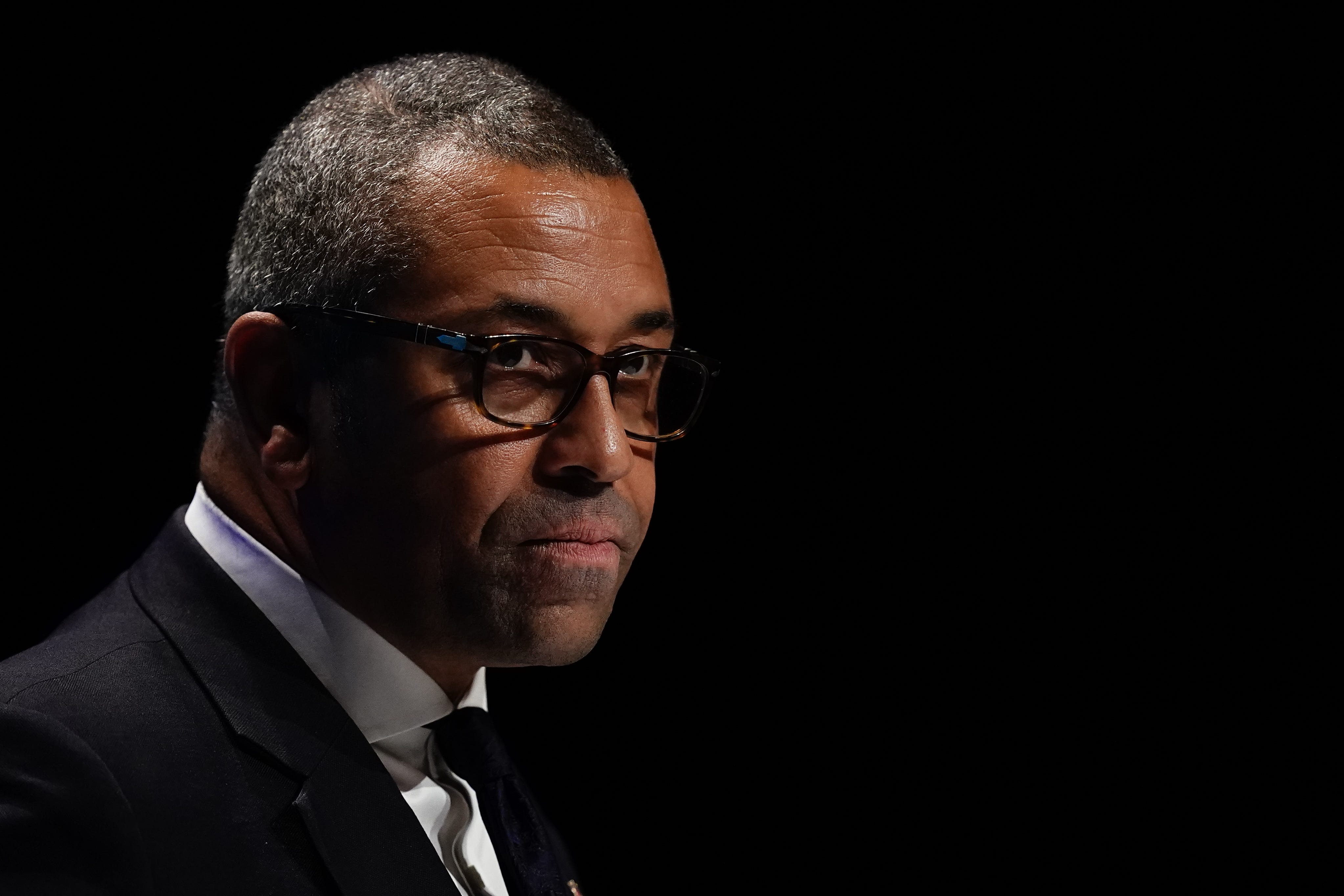
Middle-class climate protesters would have been treated much worse if they were black or working-class, the foreign secretary has claimed.
James Cleverly hit out at activists’ “criminality” just hours after MPs passed into law a Bill cracking down on protests that has been widely condemned as “draconian”.
Taking aim at activists who have poured milk on shop floors and thrown soup over a Van Gogh painting, Mr Cleverly said: “I’m seeing people who are disrupting the lives of others. When people pour milk all over the floor of a shop, guess who has to clear it up?

“It’s hard-working people, often not very well paid, when people deface [or] vandalise – and it is vandalism, incredibly significant cultural works of art and businesses and public property,” the Tory MP added.
Climate protesters have several times this month poured milk over supermarket floors around the UK, including in Harrods, Waitrose and Marks & Spencer, to draw attention to their demand that the UK move to plant-based diets to cut greenhouse gas emissions.
Other activists threw tomato soup over Van Gogh’s Sunflowers in the National Gallery last week.
And every day for nearly three weeks, members of the Just Stop Oil group have stopped traffic by sitting in main roads, some gluing themselves to the tarmac, to urge climate action.
All the demonstrators claim they have to take direct action because the climate crisis needs more urgent action than that taken by governments.

Mr Cleverly, himself black, told Times Radio: “If they weren’t – and I have to say attention-seeking – middle-class people, I think the general condemnation would be a lot harder, if these were working-class boys.
“As I say, black boys from Lewisham or working-class boys from Wolverhampton, I think that it would be treated as criminality and nothing more.
“And I think that giving this kind of behaviour some kind of implicit acceptance because of who’s conducting it, I think is completely inappropriate.
“We should see it for what it is: this is criminal damage, and that’s how it should be treated.”

A Bill cracking down on street protests was passed by MPs on Tuesday. The Public Order Bill, likened by opponents to police-state measures, creates new offences for “locking on” and disrupting transport and infrastructure.
It also includes protest banning orders and creates Serious Disruption Prevention Orders, which come with conditions on repeat offenders.
Human-rights groups say the “draconian” new law is like crackdowns in Russia and Iran.
Last year a report by the Network for Police Monitoring uncovered evidence of excessive use of force, failures in the duty of care, and racial discrimination in the policing of recent anti-racism protests in the UK.

Black-led protests disproportionately faced excessive interventions by police, particularly those in large cities, such as London and Newcastle, the research found.
But BME people are increasingly becoming involved in environmental campaigning. The Black Environment Network works to encourage ethnic participation in the environment, with projects such as linking BME communities with local food-growing opportunities.
Student Dominique Palmer has been featured in the Forbes 100 UK Environmentalists List and spoke at the 2019 United Nations Climate Change Conference (Cop25).
The Independent asked the Home Office and the Metropolitan Police to comment, but both declined.







